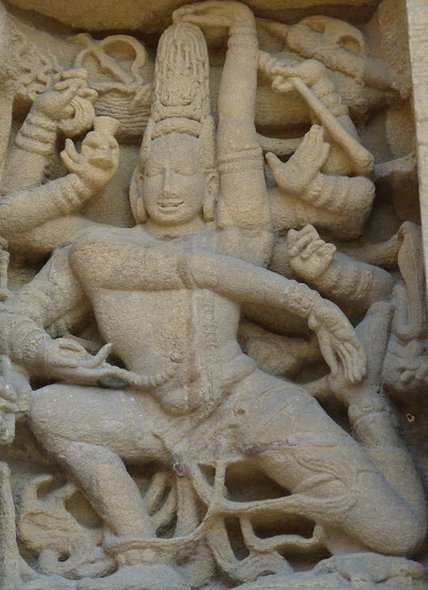- Ancient treasures from the Nolamba Pallavas dynasty were discovered at Cholemarri hamlet, 22 km from Penukonda in the Sri Sathya Sai region.
Important Findings
- Location of the Battlefield: Evidence points to a bloody war between the Nolamba Pallavas and the Bhana-Vaidambas in the ninth century AD.
- Artefacts and inscriptions:
- In the meadows, an inscription of Mahendra Nolambadhi Raja (875-897 AD), monarch of Henjeru (now Hemavati), was discovered.
- Near Anjaneyaswamy temple, hero stones with Telugu inscriptions (written in ancient Kannada script) from the Nolamba and Vijayanagara eras were uncovered.
About Nolamba Dynasty
- The Nolamba Dynasty ruled from the eighth to the twelfth century C.E.
- Nolambavadi area, which includes portions of southeast Karnataka, Tamil Nadu, and Andhra Pradesh.
- Initially feudatories to the Pallavas, Chalukyas of Badami, Gangas, and Rashtrakutas, and eventually to the Chalukyas of Kalyani. Inscriptions frequently relate to Nolamba Pallava.
- Capitals: Initially Chitradurga, but subsequently Hemavati.
- Origin:
- Mangala Nomabathi Raja (735-785 A.D.) founded the kingdom.
- As governors under the Pallavas and Chalukyas.
- Pallavas, Chalukyas, Banas, and Vaidumbas experienced allegiance transfers.
- The word “Nolambas” was used with the rise of the Chalukyas under Vikramaditya I.
- Decline: Overrun by Marasimha, the Ganga ruler who assumed the title Nolambakulantaka.
- Cultural contributions include the construction of major temple complexes such as the Kalleshwara Temple in Aralaguppe, the Bhoganandishwara Temple in Nandi, and the Ramalingeshwara Temple in Avani.
- Religious affiliation: Shaivites predominate, with temples devoted to Lord Shiva.
Source: https://www.mintageworld.com/history/detail/259-Nolambas/

